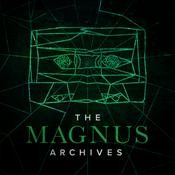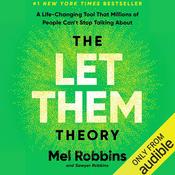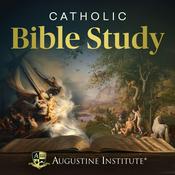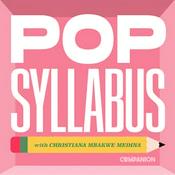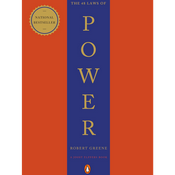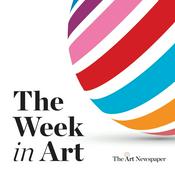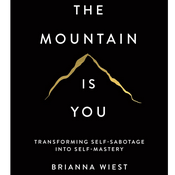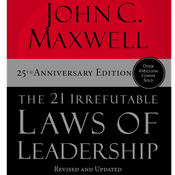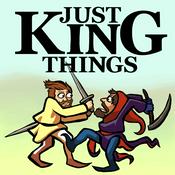13 episodes
- For the final episode in Among the Ancients, Emily and Tom look at Seneca, whose life is relatively well known to us. A child of the established Roman Empire, born around the same time as Jesus, Seneca had turbulent relationships with the emperors of his time: exiled by Caligula, he returned to tutor the young Nero, but was eventually forced to commit suicide after being accused of a treasonous plot. For a long time, Seneca the Philosopher was often assumed to be a different person from Seneca the Tragedian, as they seemed such different writers. As a philosopher, he is the main source of what we know about Roman Stoicism, which prioritises virtue and the dispelling of false beliefs. Seneca's dramas, however, are full of extreme emotions and violence. Emily and Tom focus on two of these tragedies, Thyestes and Trojan Women, and consider how the two sides of Seneca fit together.
Non-subscribers can only hear extracts from most of the episodes in this series. To listen in full, and to all our other Close Readings series, subscribe:
Directly in Apple Podcasts: https://apple.co/3pJoFPq
In other podcast apps: lrb.me/closereadings
Further reading in the LRB:
Shadi Bartsch:
https://www.lrb.co.uk/the-paper/v37/n12/shadi-bartsch/fratricide-matricide-and-the-philosopher
https://www.lrb.co.uk/the-paper/v31/n04/shadi-bartsch/dire-fury
John Henderson:
https://www.lrb.co.uk/the-paper/v20/n07/john-henderson/dead-eyes-and-blank-faces
Emily Wilson is Professor of Classical Studies at the University of Pennsylvania and translator of the 'Odysse'y and the 'Iliad'. Thomas Jones is an editor at the London Review of Books and host of the LRB Podcast.
Hosted on Acast. See acast.com/privacy for more information. - Ovid was perhaps the most prolific poet of Ancient Rome, certainly in the amount of his poetry which has survived (around 30,000 lines). This episode focuses on his 15-book epic, the Metamorphoses, a patchwork of hundreds of stories of transformation, including numerous retellings of famous myths from Apollo and Daphne to the Trojan War.
In this episode from Among the Ancients, Emily and Tom consider the poem’s depictions of trauma, redemption and the transformation of gender roles, and the formal practices which shape the poetry, such as declamatio and suasoria. They also ask how Ovid’s writing in the time of Emperor Augustus affected his work, and the circumstances around his later exile from Rome.
Non-subscribers can only hear extracts from most of the episodes in this series. To listen in full, and to all our other Close Readings series, subscribe:
Directly in Apple Podcasts: https://apple.co/3pJoFPq
In other podcast apps: lrb.me/closereadings
Further reading in the LRB:
Denis Feeney:
https://www.lrb.co.uk/the-paper/v28/n16/denis-feeney/i-shall-be-read
Paul Muldoon:
https://www.lrb.co.uk/the-paper/v15/n04/paul-muldoon/ovid-metamorphoses
A.D. Nuttall:
https://www.lrb.co.uk/the-paper/v15/n16/a.d.-nuttall/a-kind-of-scandal
Emily Wilson is Professor of Classical Studies at the University of Pennsylvania and translator of the 'Odysse'y and the 'Iliad'. Thomas Jones is an editor at the London Review of Books and host of the LRB Podcast.
Hosted on Acast. See acast.com/privacy for more information. - Emily and Tom follow Virgil with one of his contemporaries, Horace, whose poetry played an important political role in the early years of Augustan Rome and has had an enormous influence on subsequent European lyric verse. They consider the original meanings of some of Horace’s famous phrases – carpe diem, in medias res, nunc est bibendum – and look at the ways his often complex poetics interrogate the art and value of poetry itself.
Non-subscribers can only hear extracts from most of the episodes in this series. To listen in full, and to all our other Close Readings series, subscribe:
Directly in Apple Podcasts: https://apple.co/3pJoFPq
In other podcast apps: lrb.me/closereadings
Further reading in the LRB:
Nicholas Horsfall:
https://www.lrb.co.uk/the-paper/v27/n12/nicholas-horsfall/ach-so-herr-major
Emily Wilson is Professor of Classical Studies at the University of Pennsylvania and Thomas Jones is an editor at the London Review of Books.
Hosted on Acast. See acast.com/privacy for more information. - In the ninth episode of Among the Ancients, Emily and Tom arrive at Virgil, focusing on his 12-book epic the Aeneid, which describes the wanderings of the Trojan prince Aeneas after the fall of Troy. They discuss the political background to Virgil’s life, which saw the fall of the Roman Republic, and the complex, ambiguous space his poetry inhabits, blending the mythical and historical, the geographical and imaginary, while interrogating the costs of empire and triumph in his own time.
Non-subscribers can only hear extracts from most of the episodes in this series. To listen in full, and to all our other Close Readings series, subscribe:
Directly in Apple Podcasts: https://apple.co/3pJoFPq
In other podcast apps: lrb.me/closereadings
Further reading in the LRB:
Denis Feeney:
https://www.lrb.co.uk/the-paper/v29/n01/denis-feeney/simile-world
Rebecca Armstrong
https://www.lrb.co.uk/the-paper/v43/n05/rebecca-armstrong/all-kinds-of-unlucky
Colin Burrow:
https://www.lrb.co.uk/the-paper/v22/n05/colin-burrow/imperiumsinefinism
https://www.lrb.co.uk/the-paper/v38/n08/colin-burrow/you-ve-listened-long-enough
Emily Wilson is Professor of Classical Studies at the University of Pennsylvania and Thomas Jones is an editor at the London Review of Books.
Hosted on Acast. See acast.com/privacy for more information. - In their eighth episode Emily and Tom look at a contemporary of Catullus, Lucretius, and the only poem we have from him, De rerum natura (The Nature of Things), which sets out ideas about how to live one’s life based on the Epicurean philosophical tradition, embracing friends, gardens, materialism and moderation.
Non-subscribers can only hear extracts from most of the episodes in this series. To listen in full, and to all our other Close Readings series, subscribe:
Directly in Apple Podcasts: https://apple.co/3pJoFPq
In other podcast apps: lrb.me/closereadings
Further reading in the LRB:
Richard Jenkyns: Coaxing and Seducing
https://www.lrb.co.uk/the-paper/v20/n17/richard-jenkyns/coaxing-and-seducing
Emily Wilson is Professor of Classical Studies at the University of Pennsylvania and Thomas Jones is an editor at the London Review of Books.
Hosted on Acast. See acast.com/privacy for more information.
More Arts podcasts
Trending Arts podcasts
About Among the Ancients
Emily Wilson, Professor of Classical Studies at the University of Pennsylvania and translator of both the 'Odyssey' and the 'Iliad', joins Thomas Jones, an editor at the London Review of Books, for a tour through some of the greatest works of Ancient Greek and Roman literature, from Homer to Horace.
Among the Ancients is part of the Close Readings podcasts collection from the London Review of Books.
To listen to the full series, and all our other Close Readings series (including a second series of Among the Ancients), subsribe:
Directly in Apple Podcast, at the top of this feed or here: https://apple.co/3pJoFPq
In other podcast apps: lrb.me/closereadings
Hosted on Acast. See acast.com/privacy for more information.
Podcast websiteListen to Among the Ancients, The Moth and many other podcasts from around the world with the radio.net app
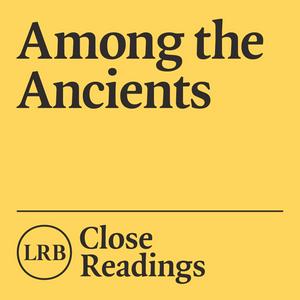
Get the free radio.net app
- Stations and podcasts to bookmark
- Stream via Wi-Fi or Bluetooth
- Supports Carplay & Android Auto
- Many other app features
Get the free radio.net app
- Stations and podcasts to bookmark
- Stream via Wi-Fi or Bluetooth
- Supports Carplay & Android Auto
- Many other app features


Among the Ancients
Scan code,
download the app,
start listening.
download the app,
start listening.


